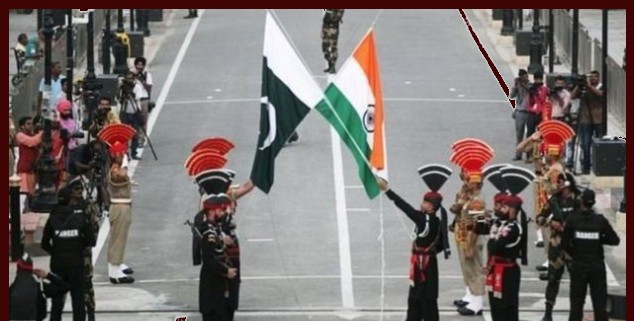Indian Defense Minister Rajnath Singh has admitted that "large numbers" of Chinese troops have entered Indian territory from the Line of Actual Control (LAC) in eastern Ladakh.
In an interview to a TV channel, he said that the border dispute was being discussed between the two (India and China) military personnel but no breakthrough had been achieved so far.
The Indian defense minister added that talks would be held on June 6 between the top officials of the two countries' armed forces.
The dispute between China and India in the Gulwan Valley area of the Ladakh region began on May 5 when, according to Chinese media, Chinese troops stopped Indian troops from building a road in their area.
India has built a 255 km long road from Darbuk to Daulat Beg Oldi in the region for military movement.
The construction of this road has made it easier to reach the Gulwan Valley and it ends near the Karakoram Pass.
China considers the Gulwan Valley as its territory. Troops from both countries clashed near the LAC, north of Lake Pangong Su, in which several soldiers were injured by iron rods and sticks.
Since then, large numbers of Chinese troops have been in the region.
According to some reports, Chinese forces have also installed artillery and tanks in the area and have begun constructing fortified buildings near the lake. China says it owns the Gluan Valley and India is building there illegally
India has also deployed a large number of troops in the affected area. The situation on the border is tense and no country has yet signaled its withdrawal.
Some analysts believe that China is under tremendous pressure from the international community, especially the United States, following the outbreak of the Corona epidemic and is focusing on border issues to get out of it.
Some observers believe that China was concerned about India's construction of roads and other military installations at key locations along its 3,500-kilometer border with India.
Following the outbreak of the Corona epidemic, China is particularly angry over measures taken at the official level in India to create an anti-China atmosphere and to attract foreign investors to invest in India instead of China.
The United States has repeatedly criticized China in this regard, while announcing India's direct support.
China has already warned India not to get involved in its confrontation with the United States. According to observers, this could also be the cause of the current border dispute between the two countries.
Andrani Bagchi, an analyst with the Times of India, says there are differences and clashes between China and India in many parts of the LAC, but the issue of the Gulwan Valley is more complicated because of the region in which Chinese troops have entered. Never come before
Chinese troops are in large numbers at at least three locations in the Gulan Valley. I don't think they will return to their old position immediately after the June 6 talks because it will be a losing position for China. I think they will stay in the region for a long time.
He said that in order to reduce tensions and to inform the people in their respective countries, it was possible for the two armies to find a way to retreat from their current positions, but expect a change in the actual position on the ground at the moment. not enough
There have also been recent protests against India in Nepal.
Nepal's parliament is currently debating a constitutional amendment that would allow the approval of a new map of Nepal, after which some border areas would be declared part of Nepal, which India claims as its territory. Is.
Tensions between Nepal and India erupted last month when Indian Defense Minister Rajnath Singh inaugurated a road near the Nepalese border in the Indian state of Uttarakhand. Nepal says the road passes through Nepal.
Nepal's political parties say residents of areas India claims as its territory have been voting in Nepal's elections for decades, and Nepal has documents of ownership of the region.
Anger with India in Nepal's political circles escalated when the Chief of Army Staff of India stated that Nepal was entangling the land dispute with India at the behest of China.
India's relations with its third neighbor, Pakistan, have long been strained.
At a time when both countries are trying to stem the Corona epidemic, India has recently ordered two Pakistani High Commission officials to leave the country after suddenly accusing them of spying.
India is also blaming Pakistan for increasing extremist activities in Indian-administered Kashmir. Diplomatic relations between the two countries have already been curtailed, but recent events and statements have further strained them. Pakistan has been denying India's allegations.
Analyst Andrani Bagchi says relations with Pakistan are already strained and High Commission diplomats have been accused of spying many times before. So I don't interpret it as opening a new front. I think the atmosphere is already very tense.

Post a Comment
Post a Comment
Please do not enter any spam link in the comment box